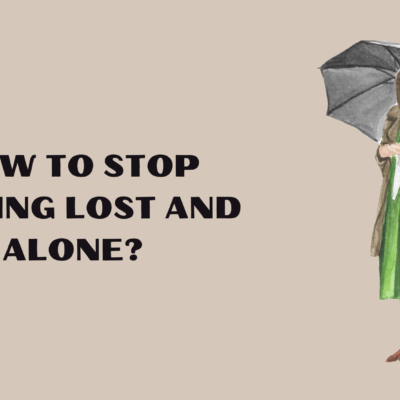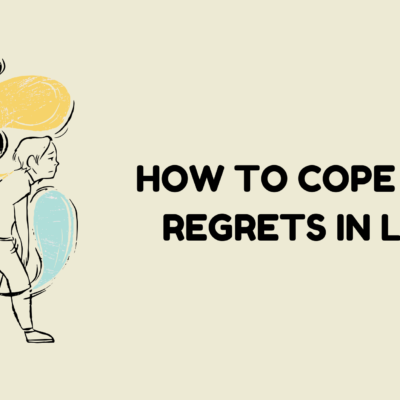How to Deal with trust issues in new relationship after being cheated on?
How to Deal with trust issues in new relationship after being cheated on: Trust is the foundation of any strong relationship, but when you’ve been betrayed in the past, it can be incredibly difficult to open up again. Being cheated on can leave deep emotional scars, making it hard to trust a new partner—even if they have done nothing wrong. Fear, insecurity, and overthinking can creep in, threatening to sabotage a potentially healthy relationship.
However, healing is possible. While rebuilding trust takes time, effort, and self-awareness, you can learn to trust again. This article explores practical strategies to help you navigate a new relationship after experiencing infidelity.
Also Read:
1. Acknowledge and Accept Your Pain
Before moving forward, it’s essential to acknowledge the pain caused by past betrayal. Ignoring or suppressing your emotions won’t make them disappear; instead, they may resurface in unhealthy ways in your new relationship.
How to Process Your Pain:
- Accept your feelings – It’s okay to feel hurt, angry, or fearful. Allow yourself to experience these emotions rather than denying them.
- Reflect on what happened – Understand that the betrayal was not your fault. Cheating is a reflection of the other person’s actions, not your worth.
- Avoid blaming yourself – Self-blame can trap you in a cycle of insecurity. Instead, focus on what you can control—your healing process.
By addressing your pain instead of pushing it aside, you can start the journey toward emotional recovery.
2. Give Yourself Time to Heal
Jumping into a new relationship too soon can backfire if you haven’t fully processed your past hurt. Healing is a personal journey, and there’s no set timeline.
Signs You May Need More Time:
- You constantly compare your new partner to your ex.
- You feel anxious or fearful even in healthy interactions.
- You find yourself pushing people away as a defense mechanism.
If you’re struggling with trust, it might help to take a step back and focus on self-growth before committing to a new relationship.
3. Be Honest with Your New Partner
Your new partner deserves honesty about what you’ve been through. While you don’t need to share every painful detail, opening up about your past can help them understand your fears and insecurities.
How to Have the Conversation:
- Pick the right time – Avoid discussing heavy topics too soon, but don’t wait until trust issues start affecting the relationship.
- Use “I” statements – Instead of blaming or projecting fears, express your feelings constructively (e.g., “I’ve been hurt in the past, so I sometimes struggle with trust.”).
- Be clear about your needs – Let them know how they can support you without making them feel like they’re responsible for fixing your pain.
A good partner will appreciate your honesty and be willing to work with you through your concerns.
4. Separate the Past from the Present
It’s natural to fear history repeating itself, but assuming your new partner will hurt you just because someone else did is unfair—to both you and them.
How to Avoid Projecting Past Pain:
- Recognize your triggers – Identify situations that make you anxious and remind yourself that your new partner is not your ex.
- Challenge negative thoughts – When doubts creep in, ask yourself: Do I have real evidence to mistrust my partner, or is this my past trauma speaking?
- Give your new partner a fair chance – Approach the relationship with an open mind rather than expecting betrayal from the start.
By treating your partner as an individual, you give the relationship a real chance to grow.
5. Build Trust Slowly
Trust is not rebuilt overnight. It takes time, patience, and consistency.
Ways to Build Trust in a New Relationship:
- Observe their actions – Trust is built on consistency, so pay attention to whether your partner’s words align with their behavior.
- Start with small acts of trust – Allow them to prove their reliability in minor situations before extending deeper trust.
- Communicate openly – If something triggers your insecurities, express your concerns rather than bottling them up.
Let trust grow naturally instead of forcing yourself to “get over” your fears too quickly.
6. Set Healthy Boundaries
Boundaries are essential in any relationship, but especially when recovering from betrayal. They help create a sense of security while ensuring you don’t fall into patterns of mistrust.
Examples of Healthy Boundaries:
- Personal space – Allow yourself time to process emotions without feeling pressured.
- Transparency, not control – It’s okay to ask for honesty, but avoid behaviors that come off as controlling (e.g., demanding access to their phone).
- Respect for past experiences – Let your partner know what behaviors (e.g., lying about small things) may be triggering for you.
Healthy boundaries promote mutual respect and prevent misunderstandings.
7. Manage Anxiety and Overthinking
Trust issues often lead to overanalyzing every interaction. Constantly worrying about whether your partner will cheat can create unnecessary tension in the relationship.
How to Stop Overthinking:
- Focus on the present – Instead of imagining worst-case scenarios, pay attention to how your partner treats you now.
- Practice self-soothing techniques – Meditation, journaling, or deep breathing can help calm anxious thoughts.
- Avoid snooping or seeking constant reassurance – Checking their messages or repeatedly asking if they love you can push them away rather than bring comfort.
Training your mind to stay grounded in reality reduces anxiety and strengthens trust.
8. Build Your Own Confidence
Low self-esteem can make trust issues worse. If you believe you’re unworthy of love, you may expect betrayal even when there’s no real threat.
How to Strengthen Self-Worth:
- Engage in activities that make you feel good about yourself.
- Surround yourself with supportive friends and family.
- Affirm your value beyond relationships.
When you feel confident in yourself, you’re less likely to assume that a partner will abandon or betray you.
9. Seek Professional Help If Needed
Sometimes, trust issues run deep, especially if past betrayal has left emotional trauma. Therapy or counseling can provide valuable guidance in processing your fears and building healthier relationship patterns.
Therapy Can Help You:
- Identify thought patterns that lead to distrust.
- Develop coping mechanisms for anxiety and insecurity.
- Heal from emotional wounds in a safe, nonjudgmental environment.
Seeking help doesn’t mean you’re weak—it means you’re committed to your emotional well-being.
10. Believe in Love Again
Perhaps the most important step in dealing with trust issues is allowing yourself to believe in love again. While one person hurt you, it doesn’t mean everyone will. There are good, faithful, and loving partners out there who deserve a chance.
How to Embrace Love Again:
- Remind yourself that love is worth the risk.
- Focus on the positive aspects of your new relationship.
- Celebrate progress, no matter how small.
Healing takes time, but with patience and effort, you can rebuild trust and experience a fulfilling, healthy relationship.
Final Thoughts
Overcoming trust issues after being cheated on is not easy, but it’s possible. By acknowledging your pain, setting boundaries, communicating openly, and working on self-confidence, you can give your new relationship the best chance to thrive.
Healing from betrayal doesn’t mean forgetting the past—it means learning from it without letting it define your future. Love again, trust again, and most importantly, believe that you deserve happiness.






